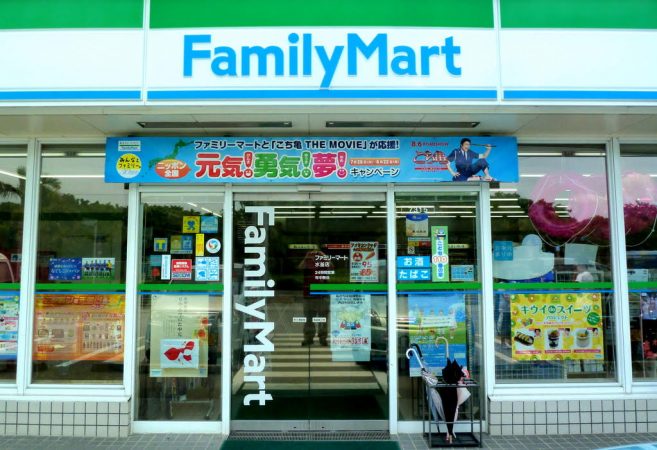
June 30, 2020
The Price of Plastic
Convenience stores and shops now charging for single-use plastic bags
From July 1, 2020, retailers, supermarkets and convenience stores across Japan will charge a fee for single-use plastic bags. This new law comes as part of a larger initiative to reduce Japan’s consumption of single-use plastics by 25 percent by 2030, but the country’s love of and attachment to the convenient material remains complicated.
Last year, nine of Japan’s beloved Nara deer were found dead with plastic bags in their stomachs. A survey in 2016 found 80 percent of the anchovies in Tokyo Bay contain plastic. Three million plastic bags were recorded floating around Osaka Bay. According to the UN, Japan ranks second to the U.S. in the world in terms of plastic packaging waste per capita, and when you take a look into its consumer culture, it’s not hard to see why.
View this post on Instagram
When entering a store, shoppers are often met with an array of meticulously packaged products, each beautifully presented, but often at the cost of excess plastic usage. One Tokyo resident commented that, “Japan is a culture of convenience. At konbini (convenience store), we can do everything from pay our bills to microwave our lunch; it’s only natural to expect that the products we buy are presented to us in an equally convenient manner — in a bag for us to easily carry home or to the office, hot food in a separate bag to cool food and so on. The cultural concept of omotenashi, or Japanese hospitality, also plays a part.In Japan, it’s seen as important to bring the customer the best service and care, which often equates to aesthetically pleasing, carefully packaged items even if it’s seen as not particularly necessary in Western eyes.”
Despite these cultural and consumer preferences, Prime Minister Shinzo Abe vowed to tackle the consequences of Japan’s love affair with single-use plastic at the G20 summit last year. He commented that, “As the presidency, we will exert strong leadership in discussions aimed towards resolving global issues such as climate change and ocean plastic waste.” The government is also aiming for a 60 percent recycling rate for containers and packaging by 2030 and 100 percent utilization of used plastics by 2035.
Greenpeace has also commented on Japan’s situation: “To show real leadership, Japan and the G20 must recognise that the linear, throwaway destructive business model must end, and that we cannot simply recycle (or incinerate) our way out of the plastics pollution crisis or substitute one problematic disposable material with another one with other problems.”
What are the new rules?
- Leading Japanese convenience store operators Lawson and Family Mart have announced that all plastic bags will cost ¥3 from July 1.
- 7-Eleven will charge ¥3 for small, medium, large and bento bags, or ¥5 for an extra-large bag.
- The minimum fee is ¥1 per bag. For most stores that are currently charging for plastic bags, the fee is ¥5 to ¥10 per bag.
- Plastic bags made from plant-derived resin components and those that are marine biodegradable are exempt from the fee.
- Fastfood chains Yoshinoya, Sukiya and Matsuya and others will switch to biodegradable bags due hygiene concerns over customers using their own bags for takeout orders.
But the new rules haven’t gone without criticism. Yukako Kaikake won an award of excellence from Chuo University for her essay “Is it Really Necessary to Reduce the Use of Plastic Bags?” (レジ袋削減は本当に必要か). Among other points, she argues that the production of plastic bags amounts to only 0.2 percent of Japan’s 240 million kiloliters of yearly oil consumption, and that shoppers must sacrifice a lot of convenience to save a small amount of oil. “Even if the number of plastic bags is reduced, it [being charged for bags] becomes inconvenient [for shoppers] and, from the viewpoint of energy consumption, it has hardly any effect.”
This is not to say that Kaikake thinks nothing should be done. Instead, she believes that there are much more efficient ways for Japan, under the guidance of the government, to be more eco-friendly and sustainable. She suggests looking to simple acts such as switching to cycling or public transport instead of driving, taking personal responsibility for one’s own consumption and choices, as well as calling for the government to develop and research gasoline alternatives.
“For example,” she continues, “if a person commuting 10 kilometers goes to work for 250 days a year, he uses 500 liters of gasoline […]. Furthermore, the carbon dioxide generated at this time is actually 300,000 liters, equivalent to 1,500 drums of oil. Just think how clean the air will be if salary workers all over Japan cooperated for even one day? […] What should be essentially done is to make maximum efforts to reduce the use of depleted resources such as fossil fuels.”
Although Japan, and the world as whole, is still far from its goals of achieving a more sustainable society, it is at least taking steps in the right direction and rethinking how society, on international, governmental and individual levels, can combat this issue. As Erik Solheim, head of UN Environment said, “Plastic isn’t the problem. It’s what we do with it. And that means the onus is on us to be far smarter in how we use this miracle material.”
What else can Tokyoites do to reduce plastic waste?
- Stores such as Loft have a range of compact, reusable eco bags to choose from.
- Some restaurants in Tokyo permit you to bring your own containers for takeout orders. Listed here.
- Farmers markets like at COMMUNE and Farmers Market @UNU often use less plastic packaging than supermarkets.
- Follow eco-savvy, Japan-based influencers for tips and advice like @eco.de.iko, @healthyexpatmama and @noplasticjapan.







